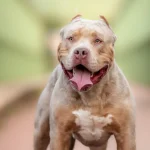Dental disease in cats and dogs is very common and if left untreated can lead to severe issues such as heart disease and kidney failure.
Did you know that at The Vet we offer free dental checks?
This is to prevent the on-set of disease or pain in your pet. As always, no appointment is needed just visit The Vet and let the receptionist know that you’d like a free dental check-up.
Why is it important to get your pet’s teeth checked?
To check for retained baby teeth, which require removal. These teeth can cause damage to the developing adult teeth and the positioning of these adult teeth. Food can also become trapped between the retained baby teeth and adult teeth, which will eventually result in pain and inflammation of the surrounding gum line and rotting of these teeth.
Early diagnosis of dental disease. If left untreated, dental disease can cause irreversible damage to your pet’s teeth, gums and jaw bones. Dental disease is very common in both cats and dogs. Surveys show that after the age of three years, about seven out of ten pets have some kind of tooth disorders.
To look for the presence of abscesses within the oral cavity. The tartar hidden below the gum line contains bacteria, which will attack the surrounding tissue causing painful inflammation (‘gingivitis’) and infection can track down to the tooth roots. Pus may build up in the roots and form a painful abscess. This inflammation wears away tissue from the gum, bones and teeth and, as the disease becomes more advanced, the teeth will loosen and fall out.
To check for other pathology, such as tumours or ulceration within the oral cavity.
To look for signs of other systemic diseases, such as renal disease in cats, that can manifest within the oral cavity.
To examine the mouth and jaw for signs of trauma.
What will happen to your pet during the free dental consultation at The Vet
The vet will ask you questions about your animal’s history, such as what type of diet they are being fed, previous dental treatments they have under gone, any tooth brushing regimes that are under taken and whether or not they are showing any signs of dental disease (such as weight loss, drooling, difficulty eating or bad breath).
The vet will then examine your pet’s mouth, looking at the teeth, gums and other soft tissue structures within the mass. They will also assess you pet’s bite and examine the symmetry of your pet’s face and muzzle. They will then have a feel of your pet’s neck to examine the glands that supply their head.
The vet will then complete a clinical examination of the rest of the pet.
At the end of the consult, the vet will then come up with a plan to suit the needs of your pet.
What happens if dental disease is not picked up?
Foul breath is very common.
The pain resulting from advanced dental disease may cause difficulties in eating, resulting in weight loss.
The pain from dental disease may also cause your pet to dribble excessively and sometimes this dribble can be flecked with blood.
Other signs associated with oral pain and discomfort can include head shaking and pawing at their mouth.
Bacteria and the poisons produced by the bacteria on the teeth can also get into the blood stream and cause damage throughout the body in organs such as the kidneys, heart and liver
Bacteria and the poisons produced by the bacteria on the teeth can also get into the blood stream and cause damage throughout the body in organs such as the kidneys, heart and liver
Can all pets be affected by teeth problems – are certain animals more to problems?
Yes, all pets can be affected by teeth problems
Some breeds tend to be more prone to dental disease, in particular small dog breeds, such as Yorkshire Terriers, Griffon Bruxellois. All dogs have the same number of teeth but in the smaller breeds, although their teeth are smaller in size, they tend to be squashed closer together, resulting in an increased risk of dental disease.
Greyhounds also tend to be prone to having poor teeth.
Cat breeds with flat noses, such as Persians, also tend to be more prone to dental problems.
How can I keep my pets teeth clean?
Ideally your pet should get used to having its teeth cleaned from a young age. Wrapping a piece of soft gauze around your finger and gently rubbing their teeth should introduce the idea. You can then move on to using a toothbrush designed for animals or a small ordinary toothbrush with soft bristles. Toothbrushes that fit over the end of your finger are also available for dogs and cats. Your vet can supply you with toothpaste suitable for cleaning their teeth. There are also some mouth washes and antibacterial gels that can help reduce plaque deposits and prevent infection. Do not use human toothpaste on your pets as it will froth up in the mouth and they will not like the taste and it could cause them harm.
There are also special diets available to help maintain clean teeth; please ask your vet for further advice or pop in to speak to the team.





